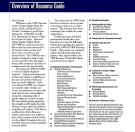FREEDOM OF THE PRESS MEETS THE PROPHET MOHAMMED
 Freedom of the press has been a staple of American culture since the initiation of the Constitutional Amendments — the First Amendment to be specific. Many nations have followed suit and we observe this sacrosanct "right" with pride and, sometimes, with caution.
Freedom of the press has been a staple of American culture since the initiation of the Constitutional Amendments — the First Amendment to be specific. Many nations have followed suit and we observe this sacrosanct "right" with pride and, sometimes, with caution.Since the flames of political and religious fervor seem to be dying down somewhat, I’m feeling I can now write about a recent subject that plowed the First Amendment into the limelight. I’m speaking about the cartoon of the Prophet Mohammed which depicted him wearing a bomb-
 shaped turban. This illustration was the brainchild (brainfart?) of a Danish newspaper and first appeared in September 2005. The unrest that ensued caused deaths, bombings, financial crisis’ and a slew of other terrible events.
shaped turban. This illustration was the brainchild (brainfart?) of a Danish newspaper and first appeared in September 2005. The unrest that ensued caused deaths, bombings, financial crisis’ and a slew of other terrible events.If you think I’m going to make some political commentary on this subject, think again. There’s been enough of that already. Plus I’m not claiming to be bright enough (or stupid enough) to make a statement that’ll somehow calm peoples nerves and settle this matter once and for all. There’s just too many variables to take into consideration. My father used to tell me that "opinions are like assholes, everyone has one." Since I also have both, I’m going to restrict one to prevent my becoming the other. But what I will do here is blog briefly about the effects literature has on the world at large and how they relate to the recent cartoon crisis.
Although cartoons may not necessarily fall into the realm of literature, you do have to observe and/or read them to "get" what they mean. I love reading Doonesbury because the cartoon
 panels are socially/politically relevant and, even if I don’t agree with what Garry Trudeau has to say in them, it always gets me to grin or cringe. Much of what Doonesbury covers relates back to the age of the hippy, too — question authority, stand up for your rights, don’t let "the man" push you around.
panels are socially/politically relevant and, even if I don’t agree with what Garry Trudeau has to say in them, it always gets me to grin or cringe. Much of what Doonesbury covers relates back to the age of the hippy, too — question authority, stand up for your rights, don’t let "the man" push you around.Newspapers are how a large percentage of the world’s population gets their information. So it shouldn’t be surprising when an article (or a cartoon) unleashes widespread change, discussion, or anger. During the U.S. Nixon administration, we all remember what happened when
 Woodward and Bernstein uncovered the Watergate debacle and published it in The Washington Post. Now that truly shows the power of the press and how the first amendment allowed these men to bring out the truth.
Woodward and Bernstein uncovered the Watergate debacle and published it in The Washington Post. Now that truly shows the power of the press and how the first amendment allowed these men to bring out the truth.Films are becoming important in the world, too, and like cartoons they are a visual (and auditory) means of conveying a message and can have a huge impact on literature. For instan
 ce, the movie CAPOTE has brought out a readership resurgence for the book IN COLD BLOOD. THE CHRONICLES OF NARNIA film has caused the old tomes to reach the bestseller lists again. And I have no doubt that the Ron Howard film THE DA VINCI CODE will make that book hit the #1 spot on many bestseller lists again. Of course, these films compete with such crap as BIG MOMMA’S HOUSE and THE CAVE — going to the theaters is sometimes risky to your intellect, so be careful.
ce, the movie CAPOTE has brought out a readership resurgence for the book IN COLD BLOOD. THE CHRONICLES OF NARNIA film has caused the old tomes to reach the bestseller lists again. And I have no doubt that the Ron Howard film THE DA VINCI CODE will make that book hit the #1 spot on many bestseller lists again. Of course, these films compete with such crap as BIG MOMMA’S HOUSE and THE CAVE — going to the theaters is sometimes risky to your intellect, so be careful.I think we sometimes forget how lucky we are to live in a place (I’m speaking of the U.S.) where freedoms are actual "rights" and are written down in documents for all to see. Many countries don’t have this and the rights change with the political climate.

We have to "put up with" these rights, too, even if we don’t always agree with what they cover (i.e., pornography, liberalism versus conservatism, etc.).
So the next time you see an article, a cartoon, or a commentary on something that rankles your hide, remember that at least you live in a country where you have the right to see it, and that right is protected by law. And, of course, you also have the right to rebuke it. So shoot off a letter to the editor if you feel like it.

It’s your right.





